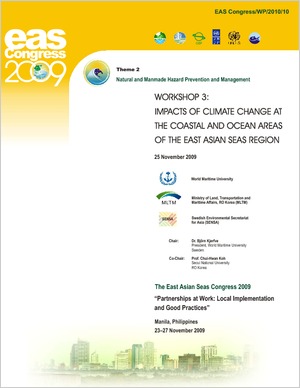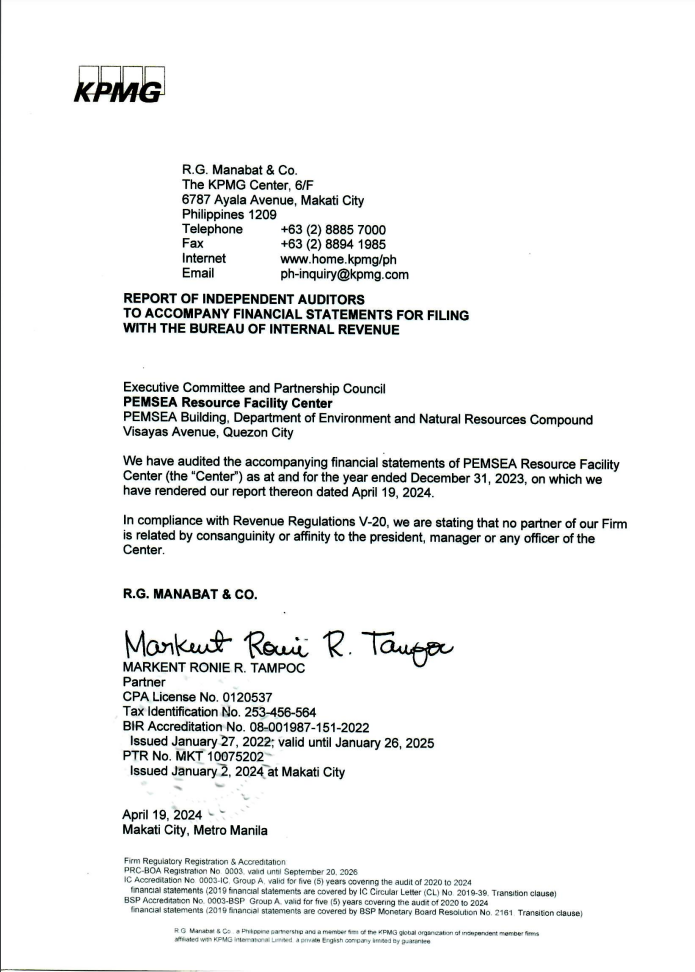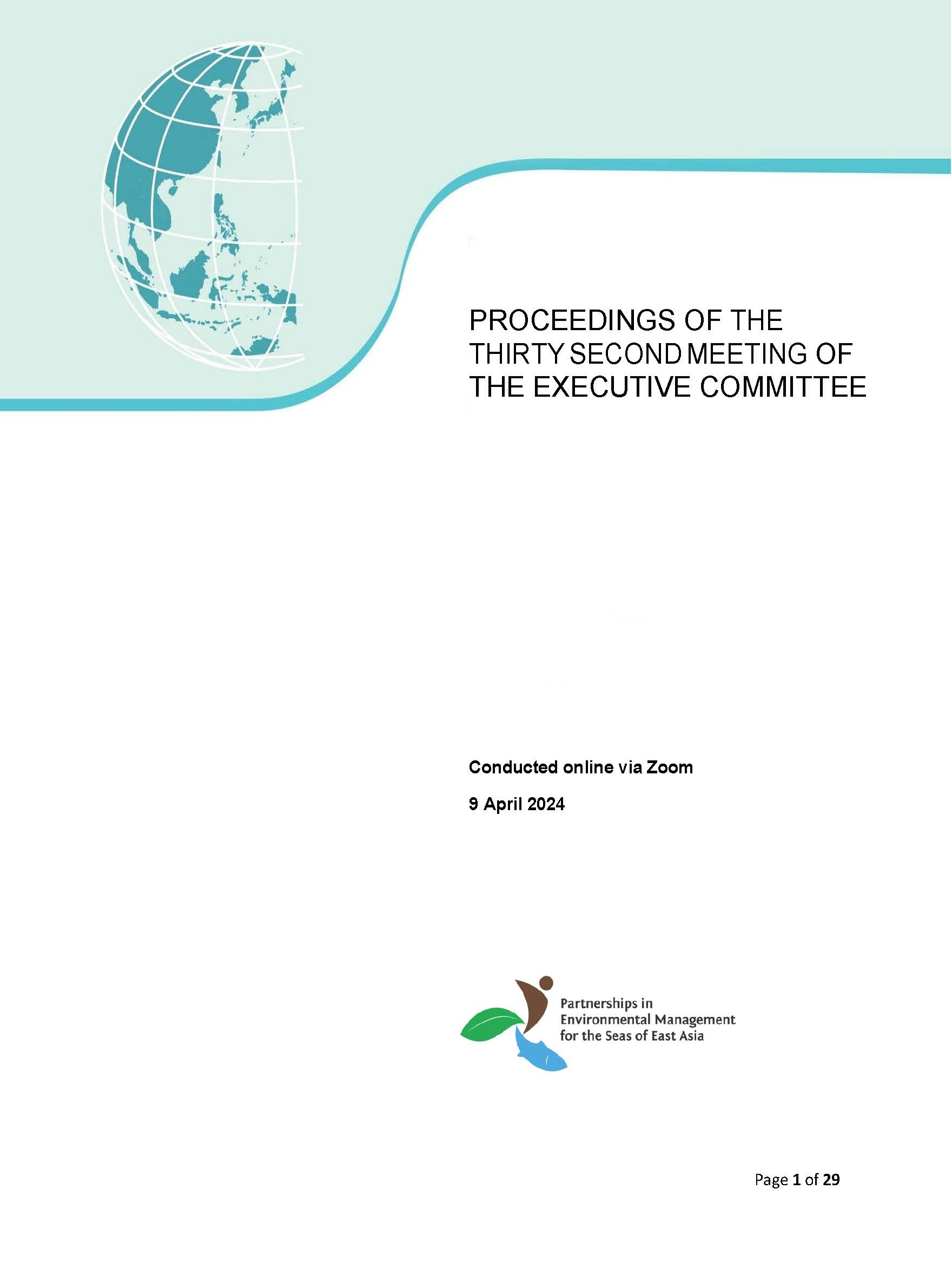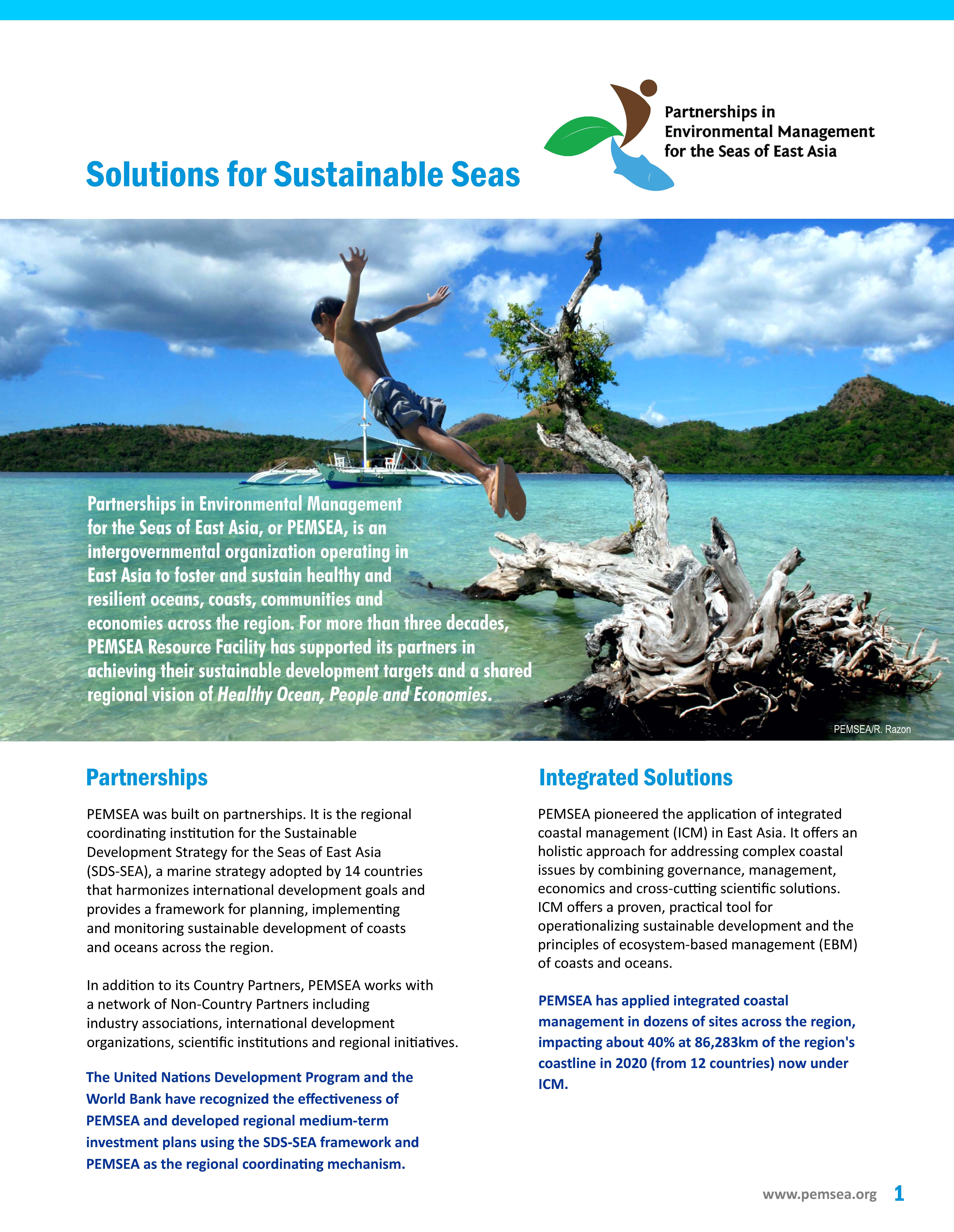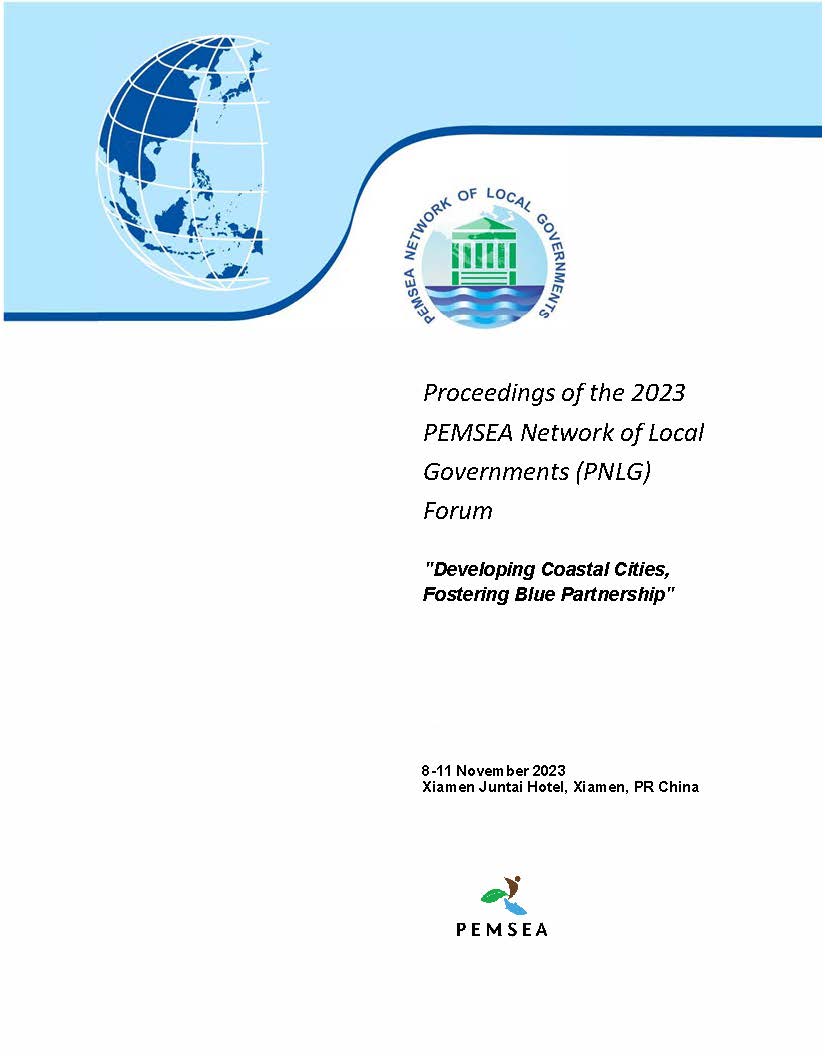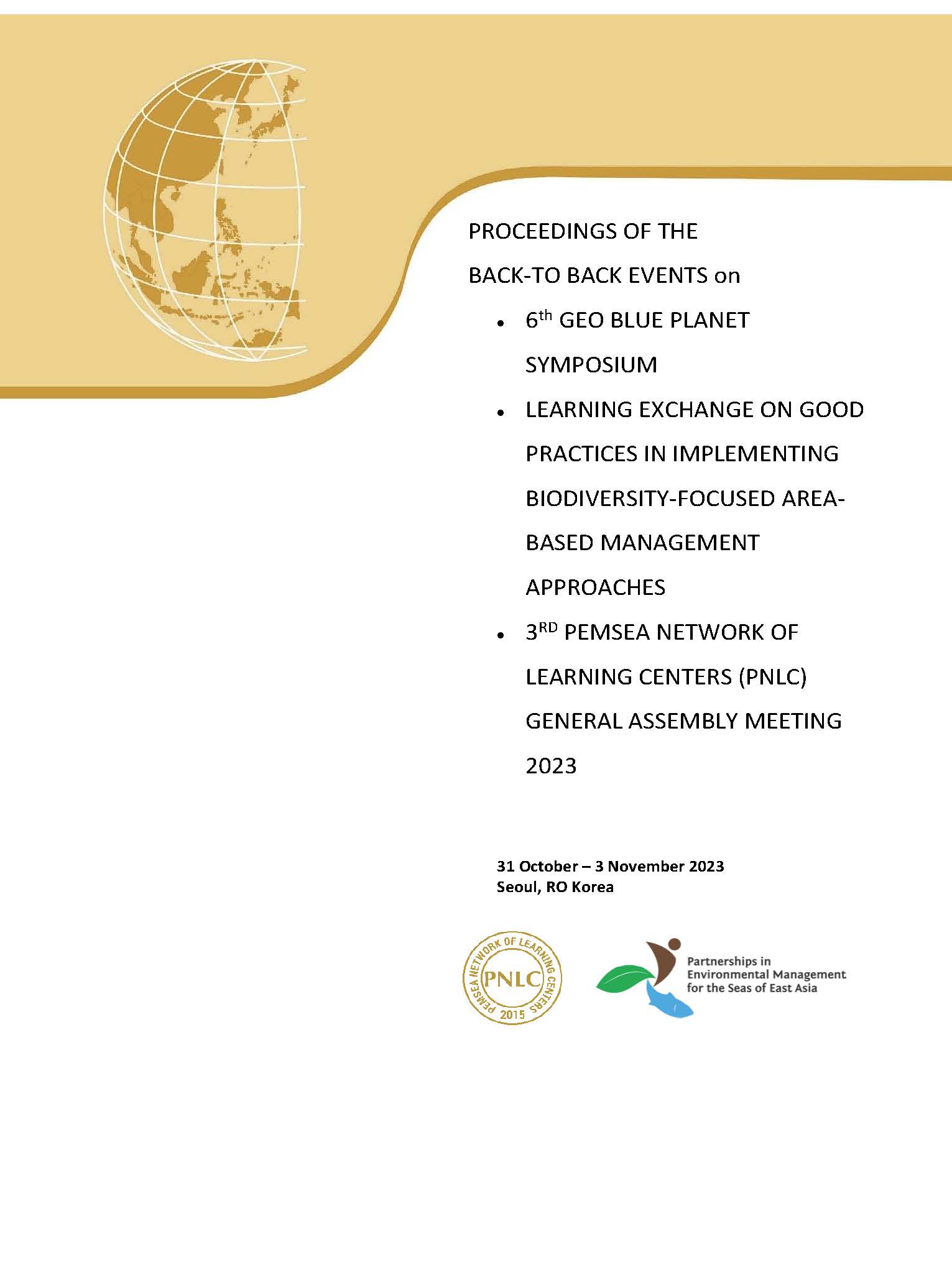
Breadcrumb
Proceedings of the Workshop on the Impacts of Climate Change at the Coastal and Ocean Areas of the East Asian Seas Region
PUBLICATION DATE:
Sunday, November 01, 2009
PUBLICATION TYPE:
Meeting Documents
STATUS:
Only Available Online
DESCRIPTION:
This publication summarizes the results of one of the workshops held during the East Asian Seas Congress 2009 on the Impacts of Climate Change at the Coastal and Ocean Areas of the East Asian Seas Region. Climate changes are not new—cycles of tremendous climate changes have happened throughout Earth’s history; but in those times, the contributions from humans were nil or very insignificant. A grave concern is very apparent today; IPCC, in its 2007 report declared, beyond doubt, a warming of the global climate system and linking it to human activities. Humankind’s excesses have thus become manifold: pollution, overextractions, introductions, habitat destruction, and now climate change have tremendously altered ecosystems and the climate and are contributing to Earth’s destruction. It is against this backdrop that the Workshop on Impacts of Climate Change at the Coastal and Ocean Areas of the East Asian Seas Region was convened during the EAS Congress in Manila, Philippines in November 2009. This workshop was aimed at articulating climate change adaptation and resilience strategies within the context of sustainable development in coastal and marine environment. In particular, the workshop objectives are: To understand the types, level and severity of the adverse social and economic impacts of climate change; and To outline actions, initiatives or response measures within and outside the East Asian Seas region related to climate change adaptation and resilience strategies. The workshop was co-convened by the World Maritime University (WMU), the Ministry of Land, Transportation and Maritime Affairs of RO Korea (MLTM) and the Swedish Environmental Secretariat for Asia (SENSA). The impacts to the East Asian Seas region were discussed as they relate to sustainable development in Monsoon Asia, fisheries production, and shipping (with the opening of Northeast Passage and Arctic meltdown). The active discussion and sharing of experiences between natural and social scientists and policymakers made reaching a common understanding of global change issues as they affect vulnerability and adaptation in coastal regional settings. The workshop also became a venue which bridged the practitioners of global change with those of a local rural development focus. Also amply articulated were different perspectives coming from disaster risk, conservation and coastal management practitioners.
RELATED PUBLICATIONS
-
Proceedings of the Thirty Second Meeting of the Executive Committee
The 32nd PEMSEA Executive Committee (EC) Meeting was conducted virtually on 19 March 2024 via Zoom. Participants of the meeting included the EC members , particularly the Chair and Co-Chair, Intergovernmental Session Chair and Co-Chair, the Technical Session Chair of the EAS Partnership Council (PC), and the Executive Director of the PEMSEA Resource Facility (PRF). Observers from the China PEMSEA Center, Ministry of Environment (MoE) of Cambodia, and Department of Environment and Natural Resources (DENR) of the Philippines also attended the meeting. PRF served as the Secretariat of the meeting.
DOCUMENT NUMBER DOCUMENT TITLE EC/32/DOC/01a List of meeting documents EC/32/DOC/01b Provisional agenda EC/32/DOC/02 Updates on the EAS Asian Seas Congress 2024 EC/32/DOC/02a Provisional Structure of the EAS Asian Seas Congress 2024 EC/32/DOC/03 Development of the 8th Ministerial Declaration EC/32/DOC/03a Concept Note and Draft Zero of the 8th MF EC/32/DOC/04 Global Trends and Opportunities Impacting the EAS Region EC/32/DOC/05 Updates on the 16th EAS PC Meeting -
Proceedings of the 2023 PEMSEA Network of Local Governments Forum (PNLG) "Developing Coastal Cities, Fostering Blue Partnership"
The 2023 Forum of the PNLG with the theme, “Developing Coastal Cities, Fostering Blue Partnership” was hosted by the PNLG and PEMSEA and co-organized by the PNLG Secretariat, PEMSEA Resource Facility (PRF) and Coastal and Ocean Management Institute (COMI) of Xiamen University (XMU). The forum was conducted on 8-11 November 2023 in Xiamen, China. The PNLG Forum was one of the key events of the Xiamen World Ocean Week.
The Forum was participated by over 130 participants from:
- 23 members from seven countries, namely: Cambodia, China, Indonesia, Malaysia, Philippines, RO Korea, and Timor Leste,
- 4 PNLG Associate members, namely the First Institute of Oceanography, Ministry of Natural Resources, China; Coastal and Ocean Management Institute (COMI) and Fujian Institute for Sustainable Oceans (FISO) of Xiamen University (XMU), China, and National Ocean Technology Center (NOTC) of the Ministry of Natural Resources, China;
- resource speakers and other invited experts,
- the PNLG Secretariat, and
- the PRF.
-
Proceedings of PEMSEA Network of Learning Centers (PNLC) back - to - back Events
The document contains the proceedings of three back-to-back activities that were conducted in Seoul, Republic of Korea from 31 October to 3 November 2023.
The activities include:
- The 6th Geo Blue Planet Symposium on Digital Solution for Sustainable Ocean Community on October 31
- PEMSEA Learning Exchange on Good Practices in Implementing Biodiversity Conservation-Focused Ecosystem and Area-based Management Approaches on November 1
- The 3rd PEMSEA Network of Learning Centers (PNLC) General Assembly Meeting on November 2
The activities were organized by the PEMSEA Resource Facility (PRF) with support from RoKorea Ministry of Ocean and Fisheries, the Korea Maritime Institute (KMI), and the Korea Management Corporation (KOEM), and the Korea Blue Carbon Research Center.
Participants include 39 representatives from 17 of the 21 PNLC members, officers, and staff from KMI, KOEM, the Korea Blue Carbon Research Center, and the PEMSEA Resource Facility (PRF).
